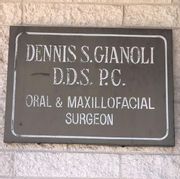
Dental implants are one of the best approaches to replacing missing teeth. Unlike other restorative dentistry options, like dentures, bridges, and crowns, implants adhere to the jawbone, making them as sturdy as the surrounding teeth. Since they are a permanent solution, though, those who decide to get them should have a comprehensive understanding of what the procedure entails. Below, Dennis S. Gianoli DDS, PC shares a few facts everyone who is considering implants should know.
Advantages & Drawbacks
Of all the restorative dentistry options, dental implants are the most like natural teeth. They are permanent and don't need extra care beyond standard brushing and flossing. People with dental implants don't worry their artificial teeth will slip or fall out when they speak or eat, nor do they require special pastes, brushes, or cleansers. The only major drawback of this procedure is that it involves oral surgery and multiple office visits.
The Procedure
Dental implants comprise two main components: a titanium root and a ceramic crown. The root is inserted directly into the jawbone, and the crown is placed on top of it a few weeks later, once the gums have healed. Through a process called osseointegration, the implant fuses with the jawbone. It is the only restorative dentistry option that prevents the natural disintegration of bone—and sunken mouth look—that develops after losing adult teeth.
If you have damaged or missing teeth and think dental implants could be the answer, turn to Dennis S. Gianoli DDS, PC. Based in Berlin, CT, this knowledgeable dentist has been treating patients throughout Hartford County for more than 30 years. Dr. Gianoli is proud to provide comprehensive oral health care for patients of all ages. To make an appointment with a skilled oral surgeon and discuss your restorative options, call (860) 828-3559.
About the Business
Have a question? Ask the experts!
Send your question

